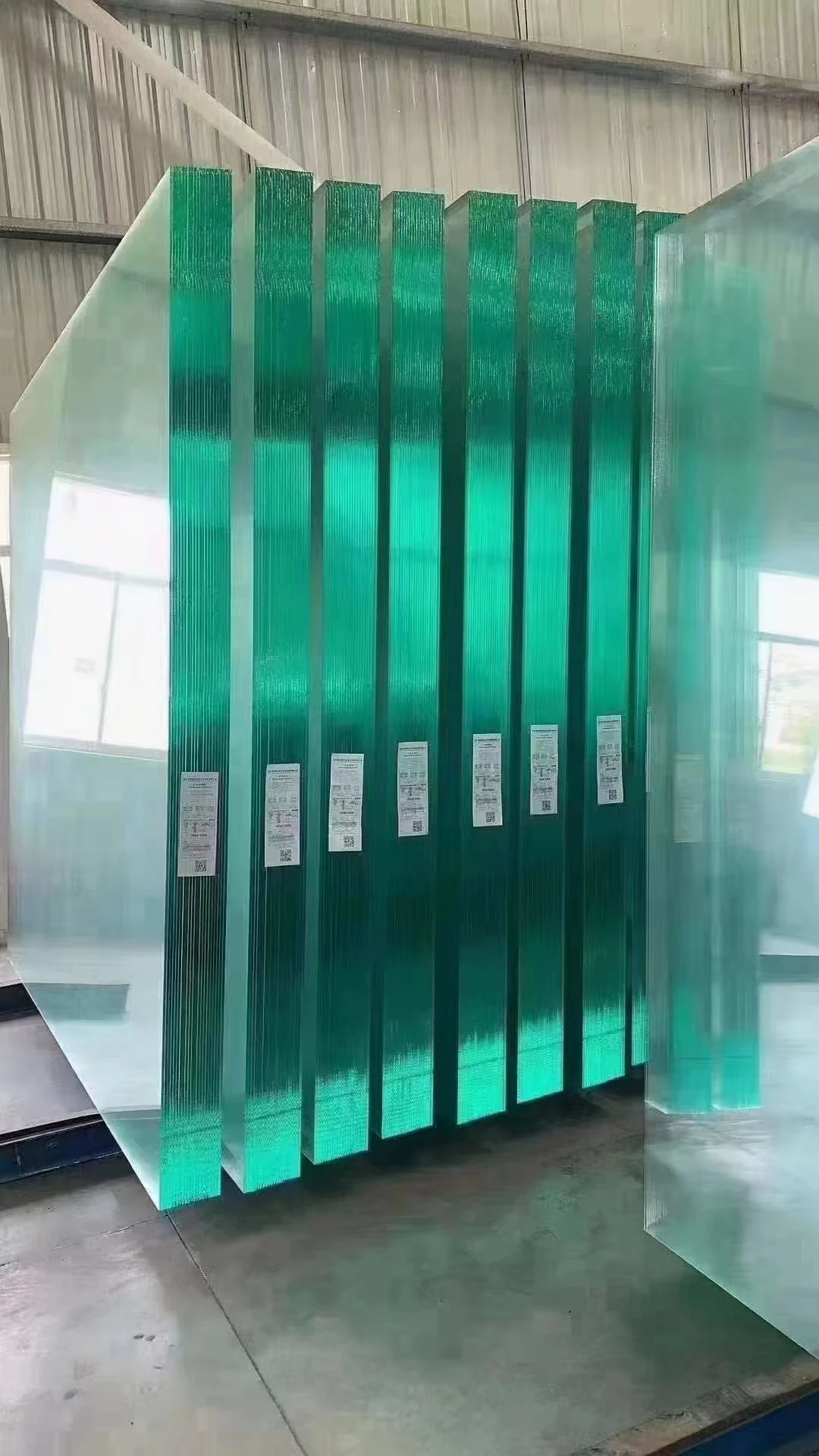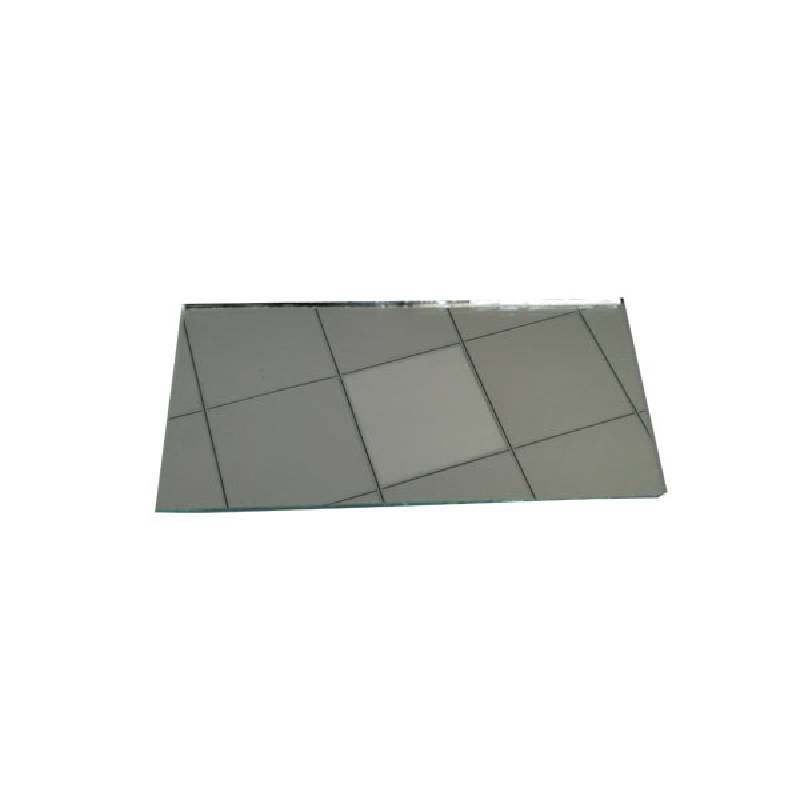Float glass manufacturing stands as a monumental advancement in the glass industry, offering unparalleled quality and versatility for diverse applications. With decades of proven expertise, float glass technology has become synonymous with strength, clarity, and precision, meeting the rigorous demands of modern architecture, automotive industries, and even high-tech devices.

At the foundation of float glass manufacturing is the innovative float process, first commercialized by Sir Alastair Pilkington in the 1950s. This method revolutionized glass production, ushering in a new era of affordability and accessibility. The process starts with a carefully formulated mix of raw materials – mainly silica sand, soda ash, and limestone – which are melted in a furnace at temperatures exceeding 1700°C. The molten glass is then carefully floated onto a bath of molten tin under controlled atmospheric conditions. This unique feature of the float process ensures that both sides of the glass sheet remain flat and parallel, with a brilliantly smooth surface.
The strategic control of temperature and chemistry during this stage is critical, requiring in-depth expertise and experience from skilled operators. It involves understanding minute details such as the viscosity of the molten glass and the tin bath's cleanliness, achieving a consistent product free from distortions and imperfections.

Serving as a testament to its versatility, float glass finds use across an array of products. Architects value it for its transparency and structural integrity, ideal for modern minimalist designs involving large windows and glass facades. The automotive industry relies on its durability and optical clarity, ensuring safety without compromising visibility. Even technological innovations, like touchscreens and solar panels, benefit immensely from the robustness and precision of float glass.
float glass manufacturing
The authority of float glass manufacturers is further reinforced by compliance with international standards and regulations. Leading companies invest in research and development to push the boundaries of innovation, focusing on areas like energy efficiency and environmental sustainability. Newer technologies are exploring the integration of self-cleaning, low-emissivity, and tinted glass options, aligning with global trends toward eco-friendly buildings and energy conservation.
Trust in float glass products is built on a foundation of rigorous testing and certification. Top manufacturers conduct comprehensive quality control measures, such as stress tests and optical assessments, to ensure products meet high safety standards. They maintain transparency through detailed product documentation and certifications that verify performance metrics, bolstering client confidence in their products' safety and reliability.
In summation, float glass manufacturing represents a blend of history, innovation, and expertise. Its sophistication lies not only in the technicalities of the production process but also in the visionary applications it supports across industries. This industry continues to inspire trust and awe, promising a future brimming with possibilities. Whether for crafting the skyline-defining skyscrapers or the technology-driven gadgets of tomorrow, float glass remains an indispensable resource.
 Afrikaans
Afrikaans  Albanian
Albanian  Amharic
Amharic  Arabic
Arabic  Armenian
Armenian  Azerbaijani
Azerbaijani  Basque
Basque  Belarusian
Belarusian  Bengali
Bengali  Bosnian
Bosnian  Bulgarian
Bulgarian  Catalan
Catalan  Cebuano
Cebuano  Corsican
Corsican  Croatian
Croatian  Czech
Czech  Danish
Danish  Dutch
Dutch  English
English  Esperanto
Esperanto  Estonian
Estonian  Finnish
Finnish  French
French  Frisian
Frisian  Galician
Galician  Georgian
Georgian  German
German  Greek
Greek  Gujarati
Gujarati  Haitian Creole
Haitian Creole  hausa
hausa  hawaiian
hawaiian  Hebrew
Hebrew  Hindi
Hindi  Miao
Miao  Hungarian
Hungarian  Icelandic
Icelandic  igbo
igbo  Indonesian
Indonesian  irish
irish  Italian
Italian  Japanese
Japanese  Javanese
Javanese  Kannada
Kannada  kazakh
kazakh  Khmer
Khmer  Rwandese
Rwandese  Korean
Korean  Kurdish
Kurdish  Kyrgyz
Kyrgyz  Lao
Lao  Latin
Latin  Latvian
Latvian  Lithuanian
Lithuanian  Luxembourgish
Luxembourgish  Macedonian
Macedonian  Malgashi
Malgashi  Malay
Malay  Malayalam
Malayalam  Maltese
Maltese  Maori
Maori  Marathi
Marathi  Mongolian
Mongolian  Myanmar
Myanmar  Nepali
Nepali  Norwegian
Norwegian  Norwegian
Norwegian  Occitan
Occitan  Pashto
Pashto  Persian
Persian  Polish
Polish  Portuguese
Portuguese  Punjabi
Punjabi  Romanian
Romanian  Russian
Russian  Samoan
Samoan  Scottish Gaelic
Scottish Gaelic  Serbian
Serbian  Sesotho
Sesotho  Shona
Shona  Sindhi
Sindhi  Sinhala
Sinhala  Slovak
Slovak  Slovenian
Slovenian  Somali
Somali  Spanish
Spanish  Sundanese
Sundanese  Swahili
Swahili  Swedish
Swedish  Tagalog
Tagalog  Tajik
Tajik  Tamil
Tamil  Tatar
Tatar  Telugu
Telugu  Thai
Thai  Turkish
Turkish  Turkmen
Turkmen  Ukrainian
Ukrainian  Urdu
Urdu  Uighur
Uighur  Uzbek
Uzbek  Vietnamese
Vietnamese  Welsh
Welsh  Bantu
Bantu  Yiddish
Yiddish  Yoruba
Yoruba  Zulu
Zulu 


